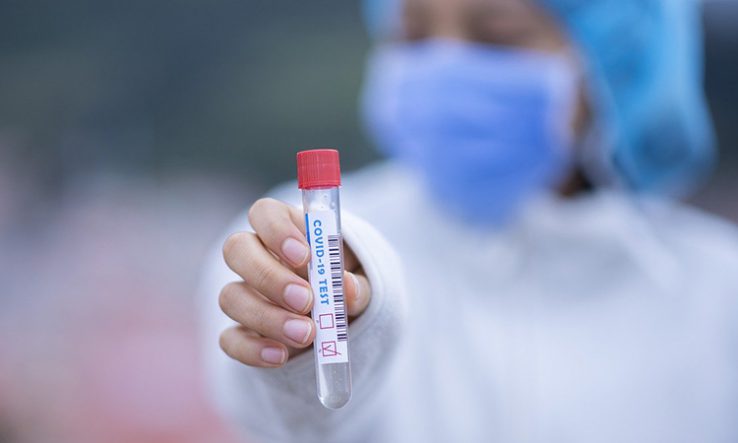
Concerns over purchase of one million tests raised as chemical and kit shortages hit NHS
Scientists have called on the government to justify its purchase of one million antibody tests amid concerns over their accuracy.
Health innovation minister James Bethell announced on 7 October that the government had signed a deal with the UK Rapid Test Consortium to purchase the tests, which use a finger-prick device and provide a result within 20 minutes.
The tests will be rolled out as part of Covid-19 surveillance studies to “help build a picture of how the virus has spread across the country and further develop our understanding of how antibodies work”, the government said. But scientists have raised concerns about the accuracy of the tests.
Hayley Jones, a senior lecturer in medical statistics at the University of Bristol, said: “The only published evidence on the accuracy of this test appears to be from a preprint article, not yet peer reviewed.”
While any errors in the accuracy of a test “can in principle be corrected for”, she said, they can also be “dangerous…if individuals receive their test results and change their behaviour based on this—due to a belief that they are immune from the virus”.
Jon Deeks, a professor of biostatistics at the University of Birmingham, said the government had “jumped the gun in purchasing the test before the independent studies evaluating it are finished or available”.
In its announcement, the government said the test had been evaluated by Public Health England and that the evaluation “will be published in due course”.
But Deeks pointed out that although PHE’s evaluation of the test was complete and submitted for publication, “the authors have not been able to post a preprint of their report, so their results are still a secret”.
He said the government was “failing to show us any valid evidence at all that suggests that spending millions buying these tests is sensible”.
A spokesperson for the health department said that PHE has completed a full evaluation of the test device and that “the evaluation is currently undergoing peer review and will be published in due course”.
“These antibody tests will be rolled out as part of government Covid-19 surveillance studies, to help build a picture of how the virus has spread across the country and further develop our understanding of how antibodies work. They will not be for widespread public use.
“Regardless of the result of an antibody test, individuals must continue to comply with government guidelines including social distancing.”
The concerns over evidence come amid reports that NHS labs across the country have been hit by shortages of vital chemicals and equipment after Swiss pharma giant Roche, which provides those supplies, warned that it had been hit by “a very significant drop in processing capacity” in its distribution centre in West Sussex.
“Roche supply problems could have a significant impact on the Covid-19 Test and Trace system depending on the inventory level of swabs, screening kits and reagents in the labs and how long this supply disruption lasts,” said Xiaojun Wang, professor of operations management at the University of Bristol.
“This supply problem occurs at very bad timing when the UK is experiencing a new wave of increasing Covid-19 infections and the surging demand for testing.”
UPDATED 8/10 – Added a DHSC comment.